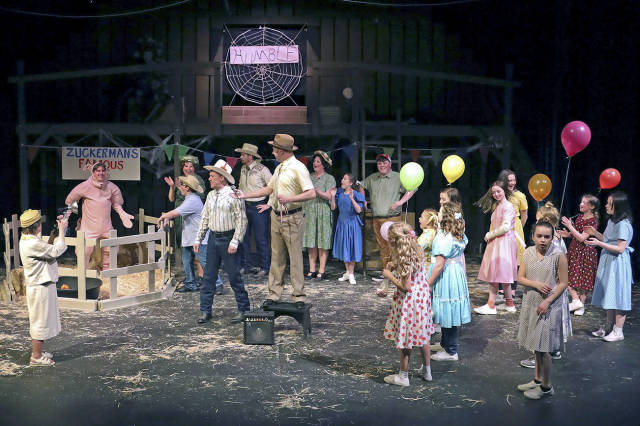A play is a work of drama, usually consisting mostly of dialogue between characters and intended for theatrical performance rather than just reading. The writer of a play is a playwright.
Plays are performed at a variety of levels, from London's West End and Broadway in New York City – which are the highest level of commercial theatre in the English-speaking world – to regional theatre, to community theatre, as well as university or school productions. The term "play" can refer to both the written texts of playwrights and to their complete theatrical performance.
Comedies are plays which are designed to be humorous. Comedies are often filled with witty remarks, unusual characters, and strange circumstances. Certain comedies are geared toward different age groups. Comedies were one of the two original play types of Ancient Greece, along with tragedies.
A generally nonsensical genre of play, farces are often acted and often involve humor. An example of a farce includes William Shakespeare's play The Comedy of Errors, or Mark Twain's play Is He Dead?.
A satire play takes a comic look at current events, while at the same time attempting to make a political or social statement, for example pointing out corruption. Satire plays are generally one of the most popular forms of comedy, and often considered to be their own genre entirely.
Tragedy contains darker themes such as death and disaster. Often the protagonist of the play has a tragic flaw, a trait which leads to their downfall. Tragic plays convey all emotions and have very dramatic conflicts. Tragedy was one of the two original play types of Ancient Greece.
Historical plays focus on actual historical events. They can be tragedies or comedies, but are often neither of these. History as a separate genre was popularized by William Shakespeare.

